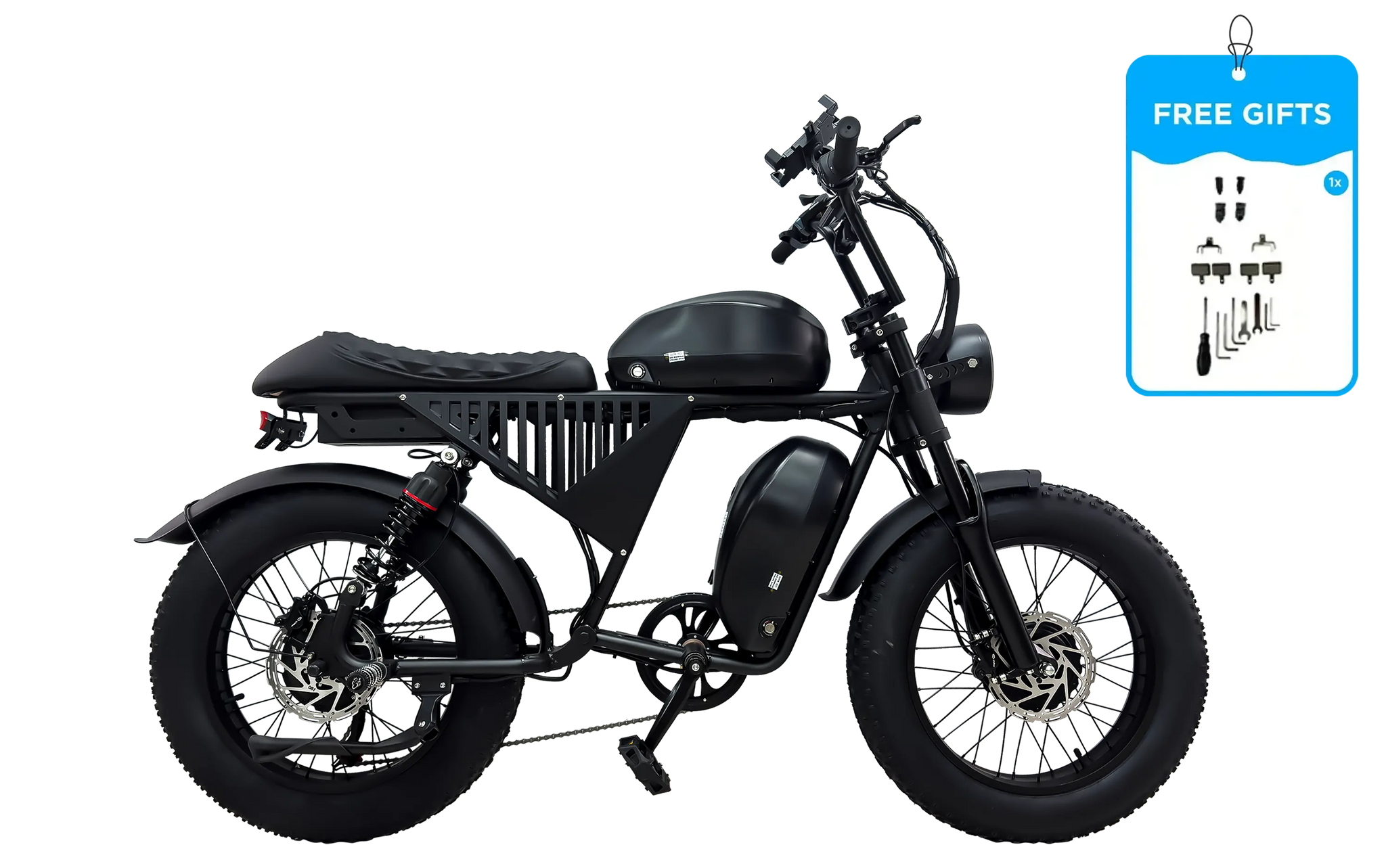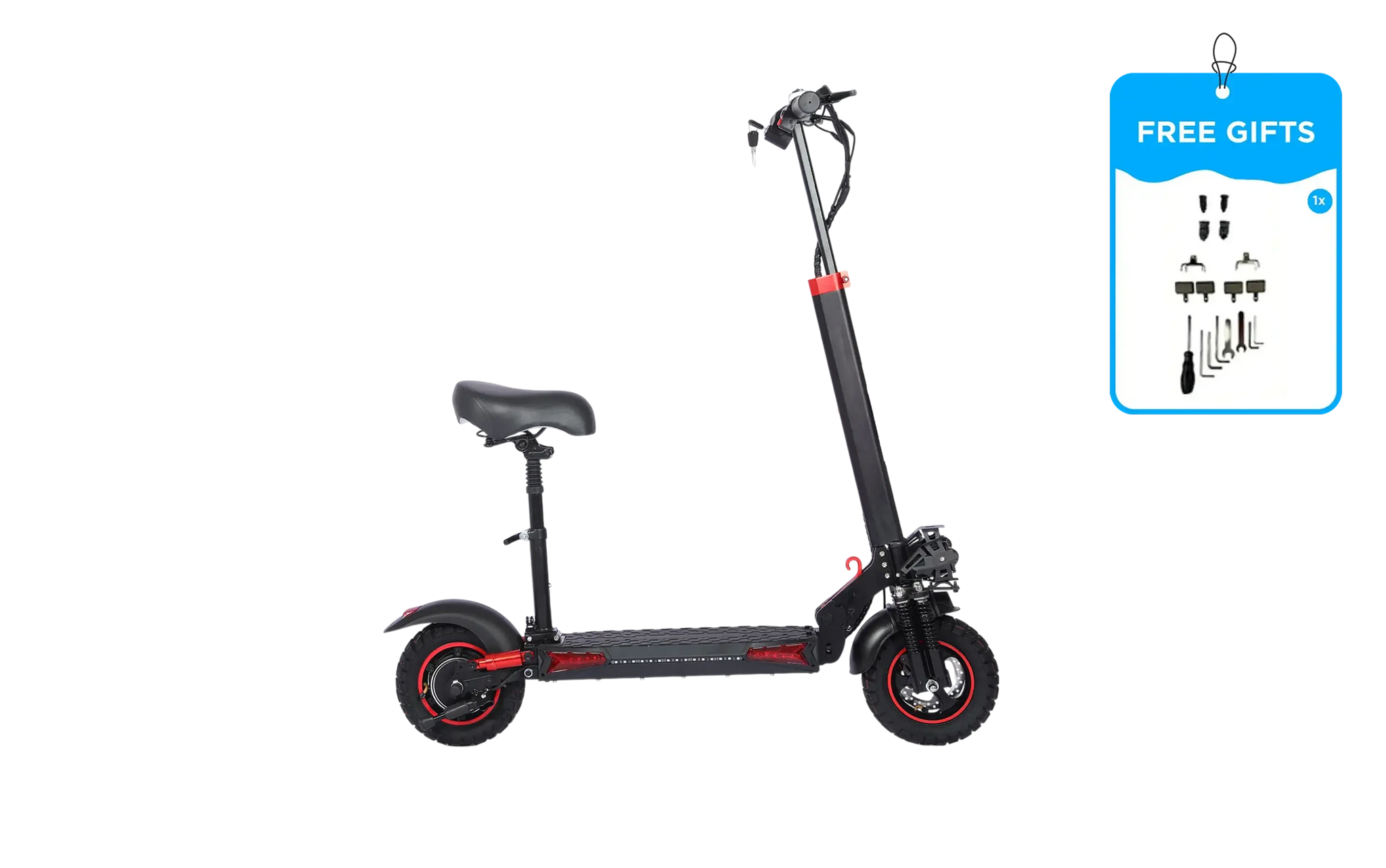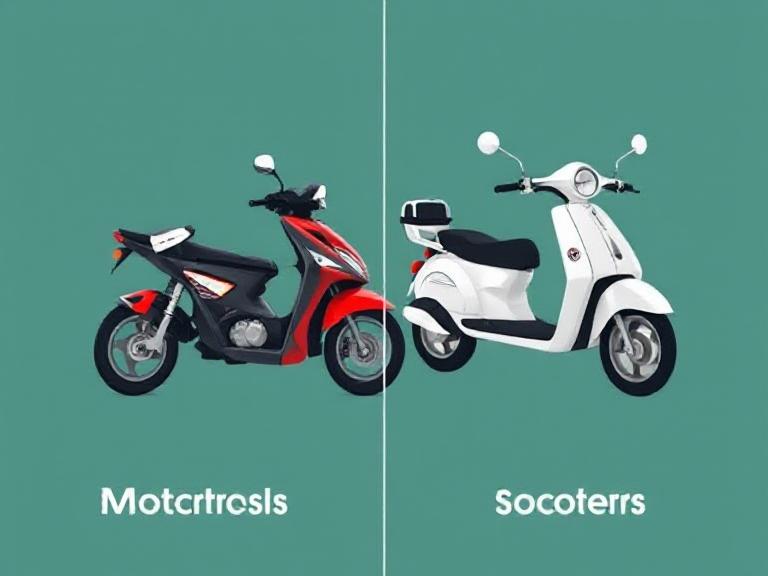When it comes to two-wheel transportation, motorcycles and scooters are the two most popular categories. Both offer freedom, affordability, and convenience, but their differences in design, power, performance, and usability make them suitable for very different riders. In this article, we will break down the key differences between motorcycles and scooters, introduce some of the best models in 2025, and provide a summary table for easy comparison.

Table of Contents
- Overview of Motorcycles vs Scooters
- Design & Frame Differences
- Engine Power & Performance
- Wheels, Tires, and Suspension
- Usability, Storage, and Portability
- Safety & Stability
- Real-World Examples: Motorcycle vs Scooter
- Summary Table
- References
Overview of Motorcycles vs Scooters
While both motorcycles and scooters are designed for personal mobility, they are optimized for different use cases. Motorcycles are generally more powerful, designed for speed, long-distance rides, and off-road adventures. Scooters, on the other hand, emphasize convenience, storage, and easy handling, making them a preferred choice for short city commutes.
- Motorcycles: High speed, durable, suitable for highways and off-road riding.
- Scooters: Lightweight, portable, efficient, ideal for urban commuting.
1.Design & Frame Differences
Motorcycle Frame
Motorcycles usually feature large, rugged frames that prioritize strength and stability. For example, the Dakeya DF1 Electric Motorcycle comes with a durable aluminum alloy frame and hydraulic disc brakes, supporting heavy loads up to 350 lbs.
Scooter Frame
Scooters have compact, foldable frames designed for portability. The J11 Electric Scooter features a durable aluminum alloy frame with integrated disc brakes and a folding mechanism, making it easy to transport and store.
2.Engine Power & Performance
Motorcycle Performance
The Dakeya DF1 Motorcycle is equipped with 3200W dual hub motors that deliver 37 MPH top speed and a long range of 90 miles. It is ideal for both urban commuting and rugged terrain.
Scooter Performance
The J11 Electric Scooter features a 1200W rear hub motor, capable of reaching 33 MPH with a maximum range of 37 miles. It provides smooth acceleration but is more limited compared to a motorcycle in terms of power.
3.Wheels, Tires, and Suspension
- Motorcycle: Larger 20” x 4.0” fat tires, advanced suspension system for off-road capability.
- Scooter: Smaller 11” tubeless off-road tires with spring shock absorbers, optimized for city streets and light off-road use.
4.Usability, Storage, and Portability
One of the biggest advantages of scooters is their foldable design and lighter weight. The J11 weighs only 65 lbs and can be folded for car or train transport. In contrast, the Dakeya DF1 weighs 141 lbs, making it more difficult to move around but offering greater stability and comfort for longer rides.
5.Safety & Stability
- Motorcycles: Heavier, more stable, better brakes, higher safety on highways and off-road.
- Scooters: Lightweight and agile but less stable at high speeds, better for controlled urban environments.
Real-World Examples: Motorcycle vs Scooter
Dakeya DF1 Electric Motorcycle

- Motor: Dual 1600W hub motors (3200W total)
- Top Speed: 37 MPH
- Range: 90 miles
- Weight: 141 lbs
- Frame: Aluminum alloy with hydraulic disc brakes
- Tires: 20” x 4.0” fat tires for all-terrain use
J11 Electric Scooter

- Motor: 1200W rear hub motor
- Top Speed: 33 MPH
- Range: 37 miles
- Weight: 65 lbs
- Frame: Foldable aluminum alloy frame
- Tires: 11” tubeless off-road tires
Summary Table
| Feature | Dakeya DF1 Motorcycle | J11 Electric Scooter |
|---|---|---|
| Motor Power | 3200W Dual Hub Motors | 1200W Rear Hub Motor |
| Top Speed | 37 MPH | 33 MPH |
| Range | 90 miles | 37 miles |
| Weight | 141 lbs | 65 lbs |
| Frame | Aluminum alloy, hydraulic disc brakes | Foldable aluminum alloy frame |
| Tires | 20”x4.0” fat tires (all-terrain) | 11” tubeless off-road tires |
| Best Use | Off-road & long-distance commuting | City commuting & portability |










Share:
7 Best Electric Bicycles for Adults Under $1000
10 Best Electric Motocross Motorcycles for Adults in 2025